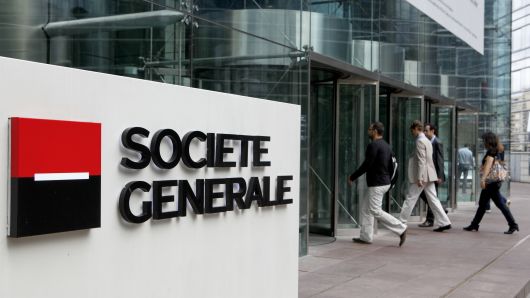Inaugurating the Terrorist Financing Targeting Center
On May 21, 2017, the United States announced that it had “signed a historic agreement” with Saudi Arabia “to establish the Terrorist Financing Targeting Center (TFTC).” The TFTC – which will be co-chaired by the United States and Saudi Arabia and involves all of the Gulf Arab states (Bahrain, Kuwait, Oman, Qatar, and the United Arab Emirates) – is intended “to expand and strengthen cooperation to counter the financing of terrorism…,” including by “facilitating coordination, information sharing, and capacity-building…” The text of the Memorandum of Understanding on Countering the Financing of Terrorism memorializing this agreement can be found here.
As described in the Memorandum, the TFTC will be initially focused on information sharing and joint action against terrorist finance networks. The United States and Saudi Arabia have undertaken joint action in the past, including the two days prior to the Memorandum. On May 19, 2017, the United States Department of State imposed sanctions on Hashem Safieddine – alleged to be a senior leader of Hezbollah – pursuant to Executive Order 13224, “Blocking Property and Prohibiting Transactions with Persons Who Commit, Threaten to Commit, or Support Terrorism.” This action was taken jointly with Saudi Arabia, which imposed sanctions on Safieddine under its Law of Terrorism Crimes and Financing and Royal Decree A/44. Similar to EO 13224, the Saudi law imposes blocking sanctions on assets held by Safieddine.
The aim of the TFTC appears to be to build up the capacity of the Gulf Arab states to combat the financing of terrorism within their own borders. This will involve, as detailed in the Memorandum, the hosting of expert workshops to discuss best practices to ensure that the participating states closely adhere to Financial Action Task Force (FATF) recommendation. Regular high- and senior-level official meetings between the countries will continue apace to support implementation.
The U.S. Department of the Treasury also signaled that it “will offer the vast expertise of [the] Office of Terrorism and Financial Intelligence to [the TFTC]” – a move that is likely to produce further joint action between the U.S. and Saudi Arabia. Presumably, with TFI’s assistance, the U.S. and Saudi Arabia will be able to take targeted action against terror finance networks in the Kingdom and beyond.
Despite this cooperation, though, news of the TFTC’s advent follows reports that Saudi Arabia stopped a U.S. proposal to add the Islamic State’s Saudi-based affiliate to the terrorism list maintained by the United Nations Security Council. The U.S. proposal “was formally blocked on May 5 by Senegal and Egypt, two members of the UN Security Council,” the latter of which explained to the United States that it was acting “at the behest of Saudi Arabia.” Saudi opposition to the listing stemmed from concern about “reputational risks,” which could lead to “losses in tourist revenue and higher insurance premiums” for the kingdom. The United States has itself designated the Islamic State’s Saudi affiliate as a Specially Designated Global Terrorist under its own sanctions (EO 13224).
Episodes like the latter threaten to derail U.S. efforts to win support for eroding terrorist finance networks found in the Gulf Arab states. More critically, so long as there remains the perception — legitimate or not — that Saudi Arabia and other Gulf Arab states continue to provide support, either financial or ideological, to terrorist networks like the Islamic State or al-Qaeda, formal partnerships like that evidenced in the recent Memorandum threaten to undermine U.S. credibility in tackling terrorist finance networks in the eyes of the U.S.’s global partners. Moreover, it is no mistake that the joint action effectively inaugurating this partnership involved targeted sanctions against a member of Hezbollah and a member of the Islamic State. Concerned about its own reputation in supporting the ideology that gives life to the Islamic State, Saudi Arabia is likely to have demanded action against Hezbollah — a non-state armed group supported by Saudi Arabia’s foremost regional rival, Iran. To the extent that the TFTC’s work — and by association, TFI’s work — is dragged into this proxy conflict between Saudi Arabia and Iran, the credibility of U.S. sanctions could be damaged even further.



